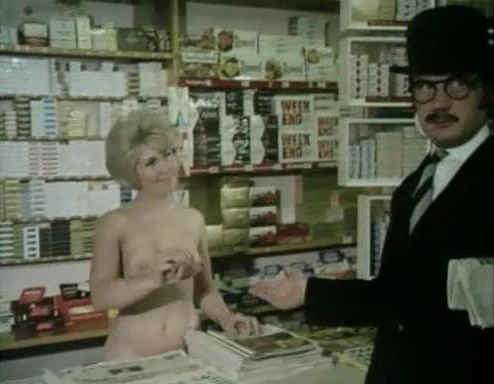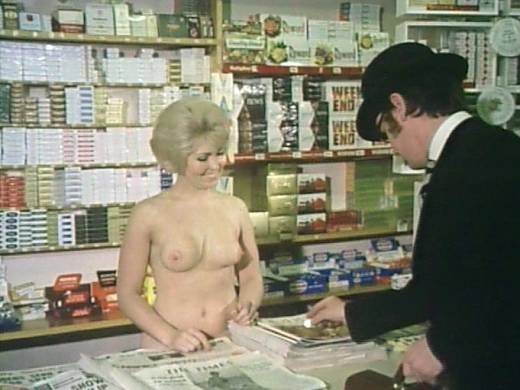The dull life of a stockbroker
Wood's most recent book is The Comedy of Redemption: Christian Faith and Comic Vision in Four American Novelists Notre Dame. This article appeared in the Christian CenturyNovember 19, pp. Copyright by The Christian Century Foundation; used by permission. Current articles and subscription information can be found at www. This material was prepared for Religion Online by Ted and Winnie Brock. Walker Percy has taught me more about the human condition in the 20th century than virtually any other writer.
It was through reading his works that I was first stirred from my religious slumbers and made aware of the unconscious despair that holds our culture in a veritable death grip. The laughter resounding throughout his work is also redemptive and edifying. For it is premised on the conviction -- fictionally adumbrated rather than overtly stated -- that the God who sits in his heavens and laughs our folly to scorn is first and finally the God of grace who, in Jesus Christ, humorously accepts and thus transforms our sin into the occasion for his mercy.
The plots seem banal, the characters undeveloped, the prose often slipshod. More disturbing still is the vision of human life they seem to incarnate. In Lancelot it amounts to a moral rage that is nearly misanthropic, and in The Second Coming a romantic hopefulness almost sloppily sentimental. It is my conviction, on the contrary, that what lay dormant in his early books has belatedly come to life in his recent novels.
Percy the convert became a Christian humanist. Now for the past 30 years he has been mining the rich lode of satirical denunciation and theological affirmation embedded in the Christian humanist tradition.
Death of a First Lady ; Jacqueline Kennedy Onassis Dies of Cancer at 64
For when the search is not successful, or when humans refuse even to pursue it, bitter despair may result. What is far worse, the seeker may become romantically more enamored with the journey than the destination. After the suicide of his father and the death of his mother in an automobile accident, the young Walker Percy and his two brothers were adopted by a distant kinsman named William Alexander Percy.
This remarkable Mississippian -- soldier, farmer, lawyer, teacher, poet, civic leader and above all aristocrat -- put his indelibly humanist stamp on his foster son.
Percy calls him "the most remarkable man I have ever known" and confesses that he owes him "a debt that cannot be paid. He spent five years in a slow convalescence. Confined largely to his bed and forced to confront the meaning both of his own life and of a world rending itself in war, Percy began to read omnivorously, especially the works of Dostoevsky.
For the first time he was free to question his own serene faith in science, to seek the ultimate answers which three years of psychoanalysis had not provided, and even to decide whether to pursue the medical career he had begun. Percy was clearly a man at a loss over what to do with himself. With the aid of an independent income, he lived for a while in Santa Fe, came back to the south to marry a Mississippi woman, moved with her to the hills of Tennessee near Sewanee, returned to dwell in the Garden District of New Orleans, and finally settled with his family across Lake Pontchartrain in Covington, Louisiana.
But all the while he was intensely, almost hermetically, absorbed in books and ideas. The upshot of the matter is that Percy chose to become a writer rather than a doctor. His passionate quest for truth led him to convert, into the Catholic faith. This religious and intellectual renewal meant that Percy was possessed of a vision which he wanted to articulate not only for himself but also for the edification of others.
Percy wrote essays long before he turned to fiction. He begins his theological reconstruction with a study of human possibility, not with divine revelation. His Christian humanism rests, in fact, on the conviction that theology has validity only if it can be rooted in an appropriate anthropology. Confronting the linguists and behaviorists on their own territory, Percy attempts to demonstrate how, with the gift of speech, our species makes a quantum leap out of animality.
In speaking, we cease to respond as Pavlovian beasts and become creatures capable of sadness and joy, remembrance and anticipation, damnation and beatitude. In short, the image of God takes unique and observable shape in the human. Indeed, his reading of the great Dane had nothing less than a transformative effect.

He taught Percy that the uniquely human self can provide the basis for a recovered religious faith. It is always sliding off into one sinful extreme or the other unless it is transparently grounded in the reality of God. Not until we have been disabused of our spurious humanism, Percy believes, can an authentic humanity emerge.
Hence his slashing critique of our banal talk about human dignity and the quality of life when we have not the faintest notion of what might give the individual ultimate importance or make life irreducibly sacred. His satirical fiction sounds a last-hour alarm to awaken us from our spiritual somnolence, from the unconscious despair which thinks all is well when in fact we may be lost and damned.
But Percy can turn his rapier wit as much upon himself as upon the madding crowd. His narrators all seem, in fact, to be fictional versions of himself. They tell their stories less by way of well-plotted action than by wry reflections on the meaning of their lives and times.
The redemptive power of his novels derives less, therefore, from a proposal of concrete remedies than from an admission of our illness. But that is at least half the cure. The false humanism plaguing us assumes, fore Percy, two principal though unequal forms. The first and less pernicious is the ethical humanism that nourished him as a youth, whose values he still reveres, but whose religious banality he also laments.

For unless its noble stress on human courage and honor is given theological grounding, Percy fears, it will be left dangling in the air. The far more insidious disease is what Percy calls scientific humanism -- that rough consensus of both humanistic and technical thought which has seeped into every corner of American life, convincing us that we are creatures adjusting to a habitat, fulfilling ourselves from resources latent within the environment.
His satirical sabotage is undertaken the dull life of a stockbroker the name of that "true humanism. Like Uncle Will, she is a person of sterling moral probity and intellectual culture: Being a good Stoic, she understands the impermanence of all things, the sure collapse of civilization, and the final return of nature to its original chaos. These self-sufficing souls can fight for order and justice and decency even knowing that they are fated to unsuccess.
Thus does Aunt Emily beseech her nephew to face the new barbarism with a fierce determination to go down fighting, even to relish the inevitable loss as proof of virtue and honor. This high ethical summons is largely lost on Binx. Though he admires what Aunt Emily stands for, he cannot fathom her single-minded devotion to a goodness that has no ultimate basis.
Her confident humanism has failed, in fact, to register with Binx ever since his brother Scotty died many years earlier. It was then that Aunt Emily had first counseled the young Binx to bear his sorrow with an unquivering chin. He knew that he could, if necessary, play the trooper.
But even as a child he wanted to know if that were all he was supposed to do. Where, Binx wished to ask, had his dead brother gone? If, as Stoics like Aunt Emily believe, he has simply been reabsorbed into the circumambient nothingness, why is human life not absurd and worthless?
Why, indeed, should Binx do anything at all, except perhaps -- like his father -- kill himself? And in most cases those who have committed self-slaughter are humanists who finally main features of stock market speculation in the usa during the 1920s sustain their self-sufficiency against either the decadence of the age or their own failure to find meaning in life.
Suicide was, of course, a supreme virtue among the Stoics. Percy himself seems to have a high regard for it as at least an honest cry of desperation as opposed to the dull oblivion in which most people remain sunk.

The narrator of Love in the Ruins experiences a certain relief, in fact, after having how much money can you make as a respiratory therapist attempted to take his own life.
He finds himself spiritually at home in the hospital ward for the insane, where he and his fellow inmates are free to acknowledge the misery which most of us suppress. Binx Rolling avoids this serious search for as long as he possibly can.
He fends off the ultimate curiosity by living either as a gentle amoralist who cares only for "drinks and kisses, a good little car and a warm deep thigh," or else as a mock-bourgeois conformist who keeps witty vigilance against litter-bugs, smelly armpits, and the seven signs of cancer. He cannot escape, in short, the hounding reality of the God whose cleverest ruse is what Binx calls "the dim dazzling trick of grace.
Its sly operation is revealed to him as he watches a black man attending an Ash Wednesday service. It is impossible to say which. The irony is that he probably goes, like the rest-of us, for his own selfish reasons but receives, unexpectedly, the gift of grace instead. Ethical humanism is far from being the main source of our spiritual malaise. In his most recent work Percy has come, in fact, more to honor than to seek a convergys work from home salaries for it.
His real satirical spleen is reserved for the scientific humanism which, in his view, has permeated every pore of our national life, Our schools and deutsche bank foreign currency rates, our social and governmental agencies -- even the armed forces!
A decade later it reads like palpable prophecy. Thomas More, the narrator who is also a lineal descendant of the Renaissance humanist-saint, envisions an America on the brink of a spiritual disaster whose reality few can doubt. Wolves howl in the streets of Cleveland. Buzzards circle New Orleans seeking carrion. Vines sprout up through cracks in the interstates. Parking lots lie full of moldering cars.
Ours is a country, More laments, where you can buy anything but can get nothing fixed. It is neither Nietzsche nor Marx who has done us in. America is dying for want of repairmen! We are, in sum, a nation where the venerable Christian humanist center has not held. Things have not just fallen apart, as Yeats said; they have split into warring camps.
And a spiritual monstrousness has been rollout option strategy upon the land.
The Roman Catholic Church has splintered into the relativizers whose chief concern is to justify the right of priests to remarry, and the Americanizers whose papacy is located in Cicero, whose Latin mass culminates with the singing of the national anthem, and whose high feast day is Property Rights Sunday. Among Protestants, the mainline churches have virtually abdicated to the God-hucksters of radio and TV. These bouncy boosters specialize in golf tournaments whose promotional slogan is "Jesus Christ the Greatest Pro of Them All.
The apparent opposites are, in fact, but mirror images. Both sides accept that beastly humanism which regards our species as anthropoids. Except in lonely outposts of faith -- the crippled child Lonnie in The Moviegoer, the fierce nun Val in The Last Gentleman, the firewatching Father Smith with his remnant of faithful Catholics in Love in the Ruins -- the old Christian humanist vision is dead.
The worlds of reason and revelation now seem hopelessly divided. Binx Boiling vents his rage, for instance, by calling ours "the very century of merde, the great shithouse of scientific humanism where needs are satisfied, everyone becomes an anyone, a warm and creative person, and prospers like a dung beetle.
Jackson at Chancellorsville [than] live with Johnny Carson in Burbank. Percy has described this novel as a "cautionary tale.
Even so, the novel leaves the dominant impression that Percy expects our world to be incinerated not by a fanatic terrorist or a games-playing Dr. Strangelove, but by a thoroughly moral man who can no longer stomach the spiritual softness which makes most of us, as Baudelaire said, unworthy even of damnation. When the human quest for God seems doomed to unsuccess, one can become either soreheaded or sweet.
When a retired stockbroker finds salvation between the thighs of a girl young enough to be his granddaughter, there is cause for alarm. At best it is a serendipitous by-product.
Monty Python - Wikipedia
Barrett is alarmingly gnostic in his determination to transcend both species of contemporary "assholes" -- the Christians who blandly believe everything and the atheists who fatuously believe nothing.
Yet in his desire to avoid the religious rottenness of the age, he becomes its unwitting victim. He indulges in tough Nietzschean talk about seizing the absent God and creating his own higher position above both believers and unbelievers. But Barrett cares only for his own inalienable freedom from any particular belief or permanent commitment. Alarming as it is, this tendency is not exactly new in Percy. It has been latent in his work from the start.
Percy at his best understands this utter priority of the heavenly largesse over any earthly reception of it. Indeed, their permanent disjunction is our final and funniest hope. This holy serendipity is nowhere more cheeringly rendered than in the conclusion to Love in the Ruins. In a wondrously ironic reversal, the apocalypse which Thomas More has both feared and prophesied fails to occur. The center does not hold, but neither does it completely disintegrate.
And More is left, as we all are, with the task of making life and love in the ruins of our civilization. But he cannot do it on his own. He finds himself, lapsed Catholic though he is, prayerfully if profanely invoking his saintly ancestor. He cries out for deliverance from the machinations of a devil incarnate as a funding expert. In the epilogue, when More goes to have his sins shriven, his meager confession to the priest is that he is sorry "for not being sorry.
More has not been spiritually alive enough to have committed egregious sins. On the contrary, he is just barely able to acknowledge that far deadlier evil called apathy: But this minimal admission -- a bare double negative which in the divine economy amounts to a positive sign of redemption -- releases More to new life.
Though still tippling and yet given to a wandering eye, he resumes his abandoned medical practice, marries his nurse and fathers children, takes up a political cause and returns to churchly worship. Yet More enters this gracious new life less because he has sought it than because it has claimed him willy-nilly. We last glimpse Tom More on his backyard patio on Christmas Eve He is there barbecuing in sackcloth, making merry with his wife, "dancing and singing old Sinatra songs and the Salve Regina, cutting the fool like David before the ark or like Walter Huston doing a jig when he struck it rich in the Sierra Madre".
Neither cynical nor saccharine, it is a vision built on both penitence and celebration before God, beckoning pagan and pilgrim alike. Christian and Humanist Still in Conflict by Ralph C. A Quest for Truth After the suicide of his father and the death of his mother in an automobile accident, the young Walker Percy and his two brothers were adopted by a distant kinsman named William Alexander Percy.
The Gift of Speech Percy wrote essays long before he turned to fiction. Denouncing a Bogus Humanism The false humanism plaguing us assumes, fore Percy, two principal though unequal forms.
On the Brink of Spiritual Disaster Ethical humanism is far from being the main source of our spiritual malaise. The Shrine and the Pilgrimage Alarming as it is, this tendency is not exactly new in Percy. Both Penitence and Celebration This holy serendipity is nowhere more cheeringly rendered than in the conclusion to Love in the Ruins.